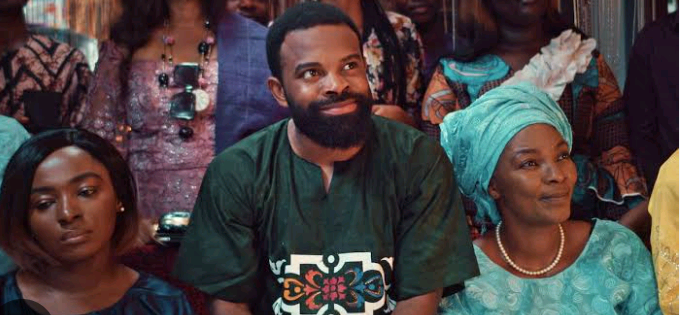Right from the very first set of Nigerian films in video cassette format produced in 1992 for home consumers. The Nigerian film industry – Nollywood, has clearly established itself as a medium for social commentary. It had its antecedents in traditional storytelling and satire, typically the domain of African drama from ancient times.
Being the second largest film industry in the world as at 2023, Nollywood has not only strived to entertain people. It has continually exposed historical and contemporary societal issues, sparking debates, and prompting for reforms. The first video format film ‘Living in Bondage’, released in 1992, is a clear example.
The Quality of Modern Nigerian Films: A Criticism
There were criticisms over the years as to the meaningful or satirical nature of many Nollywood films. Especially in its first roughly two decades of inception, when Nollywood producers struggled to fund their film projects. They churned out both the better and the banal, in terms of quality of story line.
Even till now, critics and movie lovers alike often complain about the quality and intended message of some Nigerian films. Whether they intend to inspire coveted moral virtues in the audience. Or even inspire a debate or discourse about a pressing social issue. These are by far more valuable.
Or do some Nigerian films merely celebrate bogus fashion? Because fashion consciouness (particularly amongst Nigerian actresses) seems to have invaded Nollywood – sometimes to a distracting level. Some of these Nigerian films seem to unduly emphasize something distasteful or questionable as well.
All the characteristics above have been observed in disproportionate amounts in several Nigerian films. Should the quality of a film be sacrificed on the pedestal of financial gains? It should rather not be so.
Nigerian Films: Improvements So Far
Clear references to ongoing societal issues (both modern and traditional) have never been missing in many Nollywood films. And the drive to be a catalyst for social change, better governance, and improved socio-cultural experience for the citizenry is improving by the day.
Thankfully, story lines and inspiration for Nollywood movies are evolving. They are capturing more of modern everyday experiences that are relatable to both Nigerians and foreign audiences. They tell the Nigerian experience in a more enjoyable way, sometimes humorous; showing that creative edge strongly yearned for by viewers.
Add that to an enhanced backdrop of more relatable, true-to-life movie sets that are now more common. Additionally, dressing (and makeup) that conveys the full emotional impact and realism of the storyline. There are clear improvements in these aspects, kudos to producers and directors of Nollywood.
The Social Impact of Nigerian Films: Matters Arising
A case for controversy emerged on the 21st of February 2022. Lai Mohammed, the then Minister for Information, declared a national emergency on a touchy national issue: ritual killings. The government placed a ban on Nollywood creating films with explicit content on ritual killings. Hence giving the impression that Nollywood is unduly influencing youths to partake in the horrid act.
Not that the supposed ban held weight on the long run. But exposing the crime had successfully touched the conscience of political officers. At the time, cases of ritual killings had escalated – an issue which everyday Nigerians refused to openly condemn for years while it was happening in the background. This was partly fueled by the craze to get quick wealth. And by political players who were desperate to acquire power.
However, some Nollywood executives were quick to point out that the government was dodging its responsibility. And definitely not working to stop the crime. Film director Lancelot Imasuen responded by asking:
“When did the industry become the problem of bad governance, bad roads and the reason for the economic downturn? The Nigerian film industry has always been portraying what is evidently wrong with the country and proffering solutions.”
This was actually the theme of Nollywood’s first feature film, ‘Living in Bondage‘. Ritual killings is a crime known to unfold rapidly in the days approaching any major election in the country. It has been happening for some years now.
A revised version of this crime was rebranded ‘Yahoo Plus‘. It is well-known practice amongst low-life unemployed youths who indulge in online scam and voodoo. The very fact that widespread cases of unemployment and poverty in Nigeria contributed to this trend cannot be ignored.
The Scope of Nigerian Films in Exposing Societal Issues
For an industry that has millions of followers and viewers within and outside Nigeria, driving for social change should be a key element of Nollywood. And truly, Nigerian film scriptwriters and producers have been prolific in highlighting social ills that need critical attention. Such cases include:
- dysfunctional family units, family feuds and violation of inheritance rights
- gender-based violence
- drug abuse
- mental health problems and depression
- rape
- political thuggery
- kidnapping
- corruption
- religious abuses and extremism
- terrorism
- communal conflicts
- armed banditry
- tribalism
- gender discriminations
- sex trafficking
- poverty and its effects
One would encounter one or more of these problematic socio-cultural, economic or political themes in popular Nigerian feature films. Films such as the following have been in the forefront of social commentary:
- Oloture
- LionHeart
- King of Boys
- Eyimofe
- Blood Sisters
- Citation
- Black Rose
- Shanty Town
- Code Wilo
- Saworoide
- Madam President
- Ijakumo: The Born Again Stripper
- 76
- 4th Republic
Nor is the focus of Nollywood lens on societal issues expected to dim anytime soon. It is in fact necessary. Indeed if the film industry fails to prompt for transformation of the society, its entertainment function may largely become useless. What the masses find challenging to openly express (out of fear of being targeted) is the natural domain of drama and film. Let Nollywood continue to be the voice of reason, calling for reforms, and the need to sanitize the Nigerian society.
